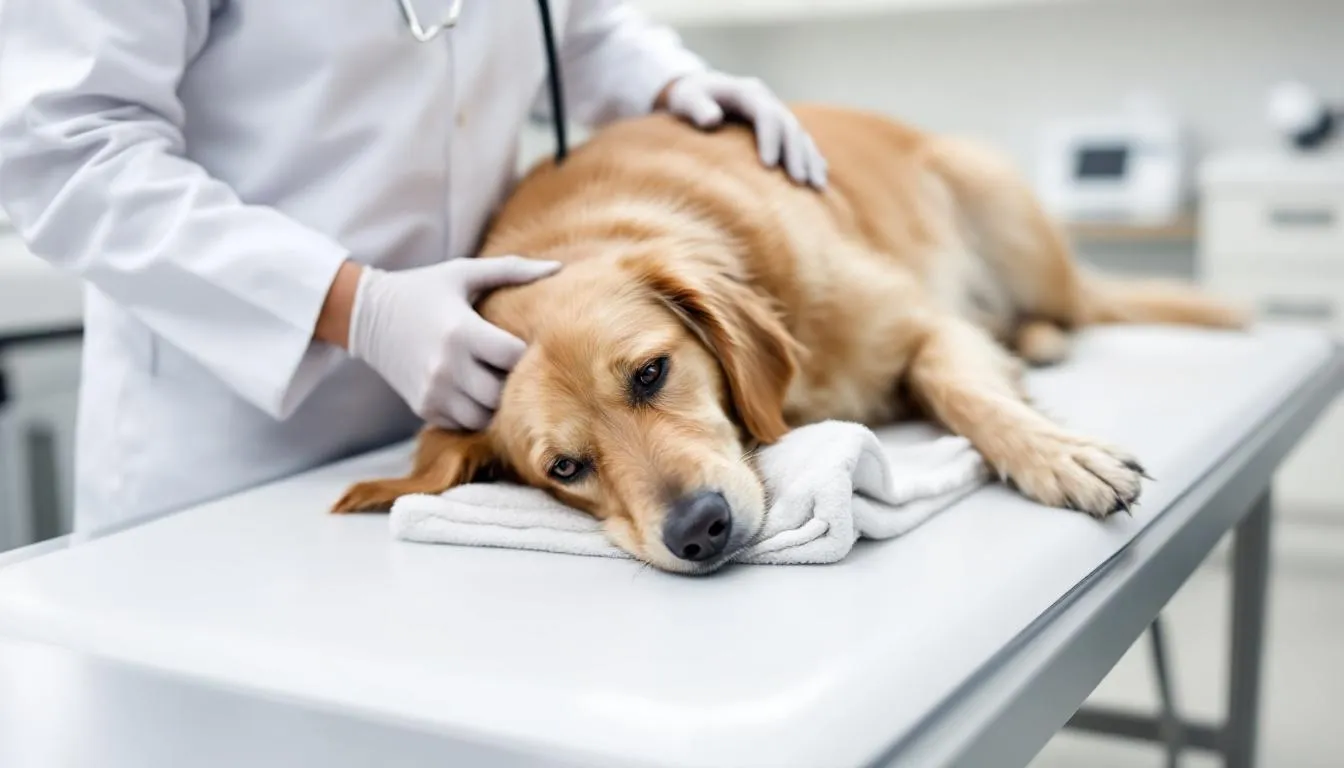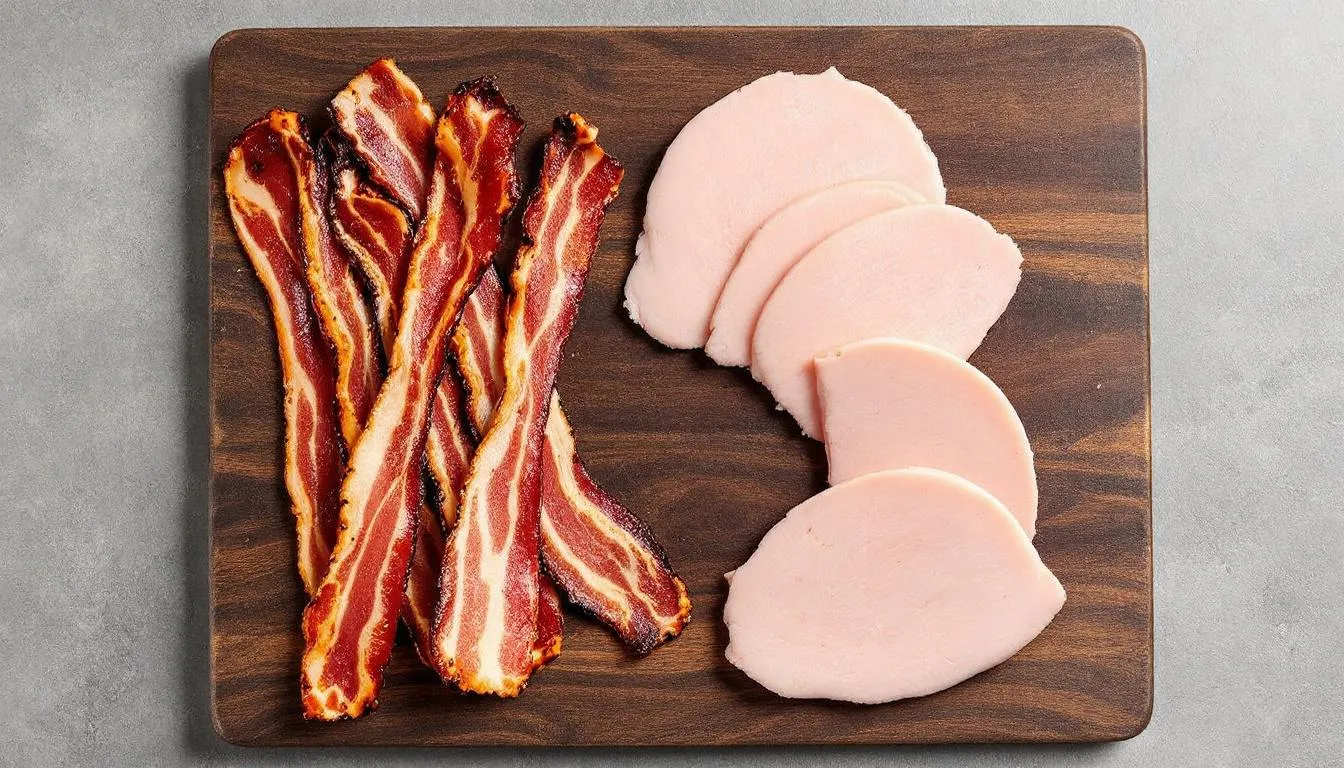Introduction to Dog Nutrition
A healthy dog starts with a balanced diet tailored to their unique needs. Just like humans, dogs require the right mix of protein, fats, carbohydrates, vitamins, and minerals to thrive. Protein is especially important for your dog’s muscle development, immune system, and overall energy levels. Lean meats, such as turkey, are often recommended because they provide high-quality protein without too much fat.
However, a dog’s digestive system is different from ours. While some human foods can be a tasty treat, not all are safe or suitable for your furry friend. Dogs need specific nutrients in precise amounts, and their daily caloric intake should come primarily from complete and balanced dog food. Occasional treats, like plain turkey, can add variety and enjoyment, but they should never replace your dog’s main diet.
When considering what to feed your dog, always prioritize foods that are dog safe and avoid those that can upset their stomach or cause other health risks. Understanding your dog’s nutritional needs helps you make better choices, whether you’re selecting commercial dog food or sharing a small portion of lean meat as a special reward.


Key Takeaways
The smell of roasted turkey fills your kitchen, and your furry friend gives you those irresistible puppy eyes. Before you share that holiday feast, you need the facts about whether dogs eat turkey safely. The good news? Plain, properly prepared turkey can be a healthy treat for your canine companion. The challenge? Knowing exactly how to prepare it and what to avoid.
Dog owners should make responsible decisions when sharing turkey with their pets, considering their dog's health and consulting a veterinarian if unsure.
Turkey appears in countless commercial dog foods for good reason—it’s a lean protein source that most dogs digest well. But there’s a world of difference between professionally formulated dog food and that seasoned turkey dinner on your table. Let’s break down everything you need to know to keep your dog safe while sharing this tasty treat.
Is Turkey Safe for Dogs?
Plain, cooked turkey is generally safe for dogs when prepared properly. Turkey serves as a lean protein source commonly found in commercial dog foods, making it a familiar ingredient for most dogs’ digestive systems. White meat turkey breast represents the safest option due to its lower fat content compared to dark meat portions.
Turkey provides beneficial nutrients including B vitamins, zinc, selenium, and high-quality protein that supports your dog’s overall health. The key lies in preparation—always ensure turkey is fully cooked and served without any additives or seasonings that could harm your pet.
Is turkey good for dogs? Yes, turkey good for dogs when it is plain, cooked, and free from seasonings or harmful ingredients, as it offers valuable nutrition and can be a healthy treat.
When you feed your dog turkey, you’re offering a protein that’s often easier to digest than beef or chicken, especially for dogs with sensitive stomachs. Many veterinarians recommend turkey as part of bland diets for dogs recovering from illness or experiencing digestive upset.
However, not all turkey preparations are dog safe. The turkey on your holiday table likely contains ingredients that range from unnecessary to downright dangerous for dogs. Understanding these distinctions helps you make informed decisions about when and how to share turkey with your pet.
Nutritional Benefits of Turkey for Dogs
Turkey meat delivers impressive nutritional value that supports various aspects of your dog’s health. The high-quality protein content supports muscle development and maintenance, making it particularly valuable for active dogs or those recovering from illness.
Rich in Vitamin B6, B12, and niacin, turkey supports nervous system health and energy metabolism. These B vitamins play crucial roles in converting food into energy and maintaining healthy brain function. Your dog’s coat and skin also benefit from these nutrients, often showing improved shine and texture with regular consumption of quality protein sources.
Turkey contains zinc for immune function and wound healing, helping your furry friend fight off infections and recover from minor injuries more effectively. The selenium acts as an antioxidant, protecting cells from damage caused by free radicals and supporting overall cellular health.
Compared to other meat options, turkey remains lower in fat when the skin is removed, making it suitable for dogs who need to watch their weight or have conditions like pancreatitis. A 100-gram serving of skinless turkey breast provides approximately 135 calories with 30 grams of protein and only 1-2 grams of fat.
The amino acid profile in turkey includes all essential amino acids dogs need for optimal health. This complete protein source means your dog gets building blocks necessary for muscle repair, enzyme production, and immune system function.


When Turkey Becomes Dangerous for Dogs
While turkey can be a healthy treat, specific scenarios transform this nutritious meat into a potential health hazard. Understanding these danger zones helps you avoid emergency vet visits and keeps your canine companion safe during holiday celebrations and everyday meals. Always prioritize your pet's safety when sharing turkey during holiday meals.
The primary risks stem from preparation methods, additives, and specific parts of the turkey that should never reach your dog’s bowl. Even well-meaning pet owners can accidentally create dangerous situations by sharing seemingly harmless turkey preparations.
Emergency veterinary visits spike during holiday seasons, particularly around Thanksgiving and Christmas, when dogs consume inappropriate turkey preparations. Recognizing warning signs early and knowing when to seek immediate veterinary care can mean the difference between a minor upset and a life-threatening emergency.
Turkey Bones and Choking Hazards
Cooked bones, especially cooked turkey bones, pose one of the most serious threats to dogs. Unlike raw bones, which remain somewhat flexible, cooked poultry bones become brittle and splinter easily when chewed. These sharp bone fragments can cause choking, injure a dog's mouth, or create devastating internal injuries.
When dogs eat turkey bones, the fragments can lodge in the throat, causing an immediate choking hazard that requires emergency intervention. Even if swallowed successfully, splintered bones may create intestinal blockages that require emergency surgery to remove. The sharp edges can perforate the digestive tract, leading to internal bleeding and potentially fatal complications.
Turkey bone ingestion demands immediate veterinary attention, even if your dog seems fine initially. Bone fragments can injure a dog's mouth, causing pain, bleeding, or infection, and may lead to further complications if swallowed. Internal damage may not become apparent for hours or days, making prompt professional evaluation crucial for your pet’s safety. Contact your veterinarian immediately if your dog swallows any turkey bones, regardless of size.
Never give dogs any cooked poultry bones under any circumstances. This includes wishbones, wing bones, leg bones, and even small neck bones that might seem harmless. The size of your dog doesn’t determine safety—small bone fragments can cause just as much damage in large dogs as whole bones can in small breeds. Splintered bones can also damage the intestinal tract, causing blockages or perforations that may require emergency treatment.
High-Fat Content in Skin and Dark Meat
Turkey skin contains excessive fat that can trigger pancreatitis, a painful and potentially life-threatening inflammation of the pancreas. This condition causes severe abdominal pain, vomiting, diarrhea, and can require intensive veterinary treatment including hospitalization and IV fluids.
Dark meat turkey contains significantly higher fat content than white breast meat, making it less suitable for regular consumption. While not as dangerous as turkey skin, dark meat can still cause digestive upset in sensitive dogs or contribute to weight gain when fed regularly.
Dogs with too much fat in their diet face increased risks of obesity, which leads to joint problems, diabetes, and reduced life expectancy. Even a single high-fat meal can trigger pancreatitis in predisposed dogs, making it crucial to remove all skin and visible fat before sharing turkey.
Regular consumption of fatty foods can overwhelm your dog’s digestive system, leading to chronic digestive issues and nutrient absorption problems. The digestive tract isn’t designed to process large amounts of fat, especially in dogs who typically eat lower-fat commercial diets.
Signs of pancreatitis include loss of appetite, vomiting, diarrhea, lethargy, and abdominal pain. Dogs may assume a “prayer position” with their front end down and rear end up, indicating severe stomach discomfort that requires immediate veterinary care.
Seasonings and Toxic Ingredients
Garlic and onions are toxic to dogs and commonly appear in turkey preparations, even in small amounts that might seem harmless. These ingredients can cause hemolytic anemia, where red blood cells break down faster than the body can replace them, leading to weakness, pale gums, and potentially life-threatening complications.
Salt, butter, herbs, and spices can cause digestive problems ranging from mild stomach upset to severe dehydration and electrolyte imbalances. Many holiday turkey preparations include onion powder, garlic powder, or seasoning blends that contain these toxic ingredients in concentrated forms.
Even small amounts of toxic seasonings can harm dogs, particularly smaller breeds or those with existing health conditions. The cumulative effect of multiple harmful ingredients can create serious health risks that far exceed what you might expect from a small portion of seasoned meat.
Always serve completely plain turkey without any added ingredients, including seemingly innocent additions like butter or herbs. What tastes bland to humans provides the perfect flavor and nutrition profile for dogs without introducing unnecessary health risks.
Raw Turkey and Bacterial Contamination
Raw or undercooked turkey may contain dangerous bacteria like Salmonella and E. coli that can cause severe gastrointestinal illness in dogs. While dogs have stronger stomach acid than humans, they’re not immune to foodborne pathogens, especially puppies, senior dogs, or those with compromised immune systems.
Undercooked turkey poses serious health risks including vomiting, diarrhea, fever, and dehydration that may require veterinary treatment. The bacteria can also spread to humans through contact with infected dogs or contaminated surfaces, creating household health risks.
Always ensure turkey reaches an internal temperature of 165°F throughout before offering any portion to your dog. Proper food handling and cooking temperatures eliminate most bacterial threats while preserving the nutritional benefits that make turkey a valuable treat.
Raw meat diets require special handling and preparation techniques that go beyond casual home cooking. Unless you’re specifically trained in raw feeding practices and working with a veterinary nutritionist, stick to thoroughly cooked turkey for your dog’s safety.


Processed Turkey Products to Avoid
Processed turkey products undergo manufacturing processes that introduce harmful additives, excessive sodium, and preservatives that aren’t appropriate for canine consumption. These products prioritize shelf stability, flavor enhancement, and human taste preferences over nutritional value and pet safety.
Smoked turkey is especially high in sodium and seasonings, making it unsafe for dogs and increasing the risk of health issues.
The processing methods often concentrate harmful ingredients while reducing beneficial nutrients, creating foods that look appealing but offer little nutritional value for dogs. High sodium content, artificial preservatives, and flavor enhancers can cause immediate digestive upset and contribute to long-term health problems.
Understanding why these products pose risks helps you make better choices for your furry friend while avoiding the temptation to share convenient human foods that seem harmless but actually threaten your pet’s health.
Turkey Bacon and Sausage
Turkey bacon contains dangerously high sodium levels that can cause dehydration, increased thirst, and kidney problems in dogs. The curing process concentrates salt to levels that far exceed what dogs should consume, even in small portions that might seem reasonable.
The preservatives and additives in turkey sausage include nitrates, nitrites, and artificial flavoring that can cause digestive upset and aren’t necessary for canine nutrition. These chemicals serve human taste preferences and product preservation but offer no benefits for dogs while potentially causing harm.
Turkey sausage often contains toxic ingredients like garlic powder, onion powder, and various spices that can cause serious health problems. Even “all-natural” versions typically include seasonings and salt levels inappropriate for dogs, making them unsuitable regardless of marketing claims.
The high fat content in processed turkey products increases pancreatitis risk, especially when combined with other rich foods during holiday celebrations. These products aren’t formulated with canine nutritional needs in mind, making them poor choices for treating your pet.
Deli Turkey and Lunch Meat
Deli turkey undergoes processing with high levels of sodium and preservatives that exceed safe limits for canine consumption. The sodium content alone can cause serious health problems, while preservatives like sodium nitrite can cause digestive upset and aren’t necessary for your dog’s diet.
Processed lunch meat may contain listeria bacteria that’s particularly dangerous to immunocompromised dogs, puppies, or senior pets. The manufacturing and storage conditions for deli meat prioritize human consumption patterns rather than the food safety standards appropriate for pet consumption.
Artificial flavoring and chemicals in lunch meat can cause digestive upset, allergic reactions, and contribute to long-term health problems. These additives serve no nutritional purpose for dogs while potentially causing immediate and chronic health issues.
The texture and processing methods used for deli meat can also create choking hazards, especially for smaller dogs or those who tend to gulp their food quickly. The thin, slippery texture can ball up in the mouth or throat, creating dangerous situations.
Dog Food and Turkey
Turkey is a popular ingredient in many commercial dog foods, and for good reason. As a source of lean meat, turkey provides essential amino acids that support your dog’s muscle health, energy, and immune function. In dog food, turkey is carefully prepared and balanced with other nutrients to ensure your canine companion gets everything they need for optimal health, however; Should Dogs Eat Turkey regulary?
The turkey found in dog food is typically boneless, skinless, and cooked to eliminate any risk of bacterial contamination or sharp bone fragments. It’s combined with other ingredients to create a complete meal that meets your dog’s daily nutritional requirements. This is very different from simply feeding your dog turkey meat from your plate, which may not provide the right balance of nutrients and could introduce health risks if not prepared properly.
If you want to feed your dog turkey outside of their regular dog food, always opt for plain, cooked turkey meat with no added seasonings, skin, or bones. Remember, even plain turkey should only be given in small portions and should never make up more than 10% of your dog’s daily caloric intake. By understanding the role of turkey in your dog’s diet, you can safely offer this lean protein as an occasional, healthy treat.


How to Safely Prepare Turkey for Dogs
Proper turkey preparation starts with selecting the right cuts and cooking methods that prioritize safety without sacrificing nutritional value. Choose fresh, high-quality turkey breast or thighs, and plan your preparation to eliminate all potential hazards while preserving the benefits that make turkey a valuable treat.
Start with boneless turkey portions to eliminate any risk of bone-related injuries. If you’re working with whole turkey pieces, completely remove all bones, including small fragments that might remain after initial deboning. Check carefully for cartilage and small bone pieces that could pose choking hazards.
Remove all skin and visible fat before cooking, as these portions contain excessive fat that can trigger pancreatitis or digestive upset. Trim away any discolored areas or portions that don’t look fresh, ensuring you’re working with the highest quality meat possible.
Cook turkey to an internal temperature of 165°F throughout, using a meat thermometer to verify doneness rather than relying on visual cues alone. Avoid any cooking methods that introduce oils, seasonings, or other additives that could harm your dog. Simple baking, boiling, or steaming provides safe cooking options.
Allow cooked turkey to cool completely before cutting into appropriate portion sizes for your dog. Cut pieces small enough to prevent choking but large enough that your dog must chew rather than swallow whole. Store leftover turkey in the refrigerator for no more than 3-4 days, or freeze portions for longer storage.
Turkey jerky can also be a high-protein treat for dogs if it is specifically labeled for canine consumption and free from harmful additives like garlic or onion powder.
Proper Portion Sizes and Feeding Guidelines
Turkey treats should comprise no more than 10% of your dog’s daily caloric intake, ensuring that commercial dog food remains the primary nutrition source. When considering how much turkey to feed, always factor in your dog's daily caloric intake to maintain nutritional balance while allowing you to share healthy treats without disrupting your dog’s regular diet.
Calculate appropriate portions based on your dog’s size, weight, and activity level. A 50-pound dog might safely enjoy 2-3 ounces of cooked turkey, while a 10-pound dog should receive no more than half an ounce. These guidelines help you determine how much turkey is safe and prevent overfeeding while ensuring your dog receives meaningful enjoyment from the treat. Feeding too much turkey can lead to health issues such as pancreatitis, weight gain, and digestive problems, so moderation is essential.
Start with small amounts when introducing turkey to test for allergic reactions or digestive sensitivities. Offer just a few small pieces initially, then monitor your dog for 24-48 hours before providing larger portions. This approach helps identify potential problems before they become serious health issues.
Cut turkey into bite-sized pieces appropriate for your dog’s size and eating habits. Larger dogs can handle bigger pieces, while small dogs need correspondingly smaller portions to prevent choking. Consider your dog’s tendency to gulp food when determining appropriate piece sizes.
Monitor your dog for any digestive upset after feeding turkey, including changes in appetite, stool consistency, or energy levels. These signs help you determine whether turkey agrees with your individual dog and guide future feeding decisions.
Signs of Turkey Allergies in Dogs
Food allergies in dogs typically manifest through skin and digestive symptoms that develop gradually rather than immediately. Common symptoms include itchy skin, excessive scratching, and hot spots that appear as red, inflamed areas where your dog has scratched or licked excessively.
Gastrointestinal signs like vomiting, diarrhea, upset stomach, or excessive gas can indicate turkey sensitivity or allergic reactions. These symptoms might appear within hours of consumption or develop over several days with repeated exposure, making it important to track your dog’s response to new foods carefully.
Respiratory symptoms such as coughing, sneezing, or difficulty breathing are less common but can indicate serious allergic reactions requiring immediate veterinary attention. These signs suggest your dog’s immune system is overreacting to turkey proteins in ways that could become life-threatening.
Swelling around the face, ears, or paws may indicate allergic reactions that require prompt veterinary evaluation. This type of swelling can progress rapidly and affect your dog’s ability to breathe or swallow, making it a medical emergency that shouldn’t be treated at home.
Contact your veterinarian if any allergic symptoms develop after feeding turkey, even if they seem mild initially. Early intervention prevents symptoms from worsening and helps identify whether turkey is safe for your individual dog to consume in the future.
Holiday Foods and Dogs
The holiday season is a time for celebration, but it can also bring hidden dangers for your dog. With turkey dinners, festive spreads, and tempting treats everywhere, it’s easy to want to include your furry friend in the festivities. However, many holiday foods are unsafe for dogs and can lead to serious health problems.
Beyond turkey bones and seasoned meats, common holiday dishes often contain ingredients like chocolate, grapes, raisins, onions, garlic, and rich gravies—all of which are toxic or harmful to dogs. Even foods that seem harmless, such as stuffing or mashed potatoes, may contain butter, salt, or spices that can upset your dog’s stomach or cause more severe issues.
To keep your pet’s safety a top priority during holiday meals, set clear boundaries for what your dog can and cannot eat. Remind guests not to feed your dog table scraps, and keep unsafe foods out of reach. If you want your dog to join in the celebration, prepare a small portion of plain turkey or a dog-safe treat just for them. By staying vigilant, you can ensure your dog enjoys the holiday season without any emergency trips to the vet.


Emergency Situations and When to Call the Vet
Immediate veterinary care becomes necessary when dogs consume turkey bones, large amounts of seasoned turkey, or show signs of serious digestive distress. Don’t wait to see if symptoms improve on their own—early intervention provides the best outcomes for serious turkey-related emergencies.
Contact your veterinarian immediately if your dog eats turkey bones, regardless of size or whether your dog seems fine initially. Bone fragments can cause internal damage that isn’t immediately apparent, making professional evaluation crucial even when no obvious symptoms exist.
Signs of pancreatitis include severe abdominal pain (dogs may assume a “prayer position”), persistent vomiting, loss of appetite, and lethargy. This condition requires immediate veterinary treatment and can become life-threatening without proper intervention. Don’t attempt home treatment for suspected pancreatitis.
If your dog consumes seasoned turkey containing garlic, onions, or other toxic ingredients, contact your veterinarian or the ASPCA Poison Control Center at (888) 426-4335 immediately. Time is crucial when dealing with toxic ingestions, and professional guidance helps determine appropriate treatment approaches.
Document exactly what and how much your dog consumed, including any seasonings, cooking methods, or other ingredients involved. This information helps veterinarians assess risk levels and determine appropriate treatment protocols, potentially saving valuable time during emergencies.
Keep your veterinarian’s emergency contact information and the ASPCA Poison Control Center number readily available, especially during holiday seasons when turkey-related incidents increase. Quick access to professional guidance can make the difference between minor upset and serious complications.
FAQ
Does turkey make dogs sleepy like it does humans?
Turkey contains tryptophan, an amino acid that’s often blamed for post-Thanksgiving drowsiness in humans. However, turkey doesn’t contain enough tryptophan to cause significant drowsiness in dogs. The sleepy feeling humans experience after holiday meals comes more from overeating and consuming large amounts of carbohydrates rather than tryptophan alone. Dogs eating appropriate portions of plain turkey won’t experience energy changes related to tryptophan consumption.
Can puppies eat turkey?
Puppies can eat small amounts of plain, cooked turkey after 8 weeks of age, but their digestive systems are more sensitive than adult dogs. Introduce turkey very gradually with even smaller portions than you’d give adult dogs, and monitor closely for any signs of digestive upset. Their developing digestive systems need time to adjust to new foods, so start with tiny tastes rather than full portions. Always consult your veterinarian before introducing any new foods to puppies, as their nutritional needs differ significantly from adult dogs.
Is ground turkey safe for dogs?
Plain, unseasoned, fully cooked ground turkey is safe for dogs when prepared properly. Avoid pre-seasoned ground turkey products that contain harmful additives like garlic powder, onion powder, or excessive salt. Cook ground turkey thoroughly to eliminate any bacterial contamination, ensuring it reaches 165°F throughout. Like all turkey products, ground turkey should be limited to 10% of your dog’s daily caloric intake and served without any seasonings or additives.
Can dogs eat turkey necks?
Raw turkey necks carry significant risks of bacterial contamination and should be avoided unless you’re experienced with raw feeding practices and working with a veterinary nutritionist. Cooked turkey necks can be safer when fully cooked and properly prepared, but they still contain small bones that could pose choking hazards. If offering turkey necks, supervise your dog closely and ensure the size is appropriate for your dog’s breed and eating habits. Many pet owners find commercially prepared, dehydrated turkey neck treats designed specifically for dogs to be safer alternatives.
What should I do if my dog ate seasoned turkey?
Monitor your dog closely for symptoms like vomiting, diarrhea, lethargy, excessive thirst, or difficulty breathing. Contact your veterinarian immediately if the seasoned turkey contained toxic ingredients like garlic, onions, or excessive salt. For mild digestive upset without toxic ingredients, provide fresh water and temporarily withhold food to allow the stomach to settle. Keep the packaging or ingredient lists available for veterinary reference, as this information helps professionals assess risk levels and determine appropriate treatment. When in doubt, it’s always safer to consult with your veterinarian rather than wait to see if symptoms develop.
FAQ
Does turkey make dogs sleepy like it does humans?
Turkey contains tryptophan, an amino acid that’s often blamed for post-Thanksgiving drowsiness in humans. However, turkey doesn’t contain enough tryptophan to cause significant drowsiness in dogs. The sleepy feeling humans experience after holiday meals comes more from overeating and consuming large amounts of carbohydrates rather than tryptophan alone. Dogs eating appropriate portions of plain turkey won’t experience energy changes related to tryptophan consumption.
Can puppies eat turkey?
Puppies can eat small amounts of plain, cooked turkey after 8 weeks of age, but their digestive systems are more sensitive than adult dogs. Introduce turkey very gradually with even smaller portions than you’d give adult dogs, and monitor closely for any signs of digestive upset. Their developing digestive systems need time to adjust to new foods, so start with tiny tastes rather than full portions. Always consult your veterinarian before introducing any new foods to puppies, as their nutritional needs differ significantly from adult dogs.
Is ground turkey safe for dogs?
Plain, unseasoned, fully cooked ground turkey is safe for dogs when prepared properly. Avoid pre-seasoned ground turkey products that contain harmful additives like garlic powder, onion powder, or excessive salt. Cook ground turkey thoroughly to eliminate any bacterial contamination, ensuring it reaches 165°F throughout. Like all turkey products, ground turkey should be limited to 10% of your dog’s daily caloric intake and served without any seasonings or additives.
Can dogs eat turkey necks?
Raw turkey necks carry significant risks of bacterial contamination and should be avoided unless you’re experienced with raw feeding practices and working with a veterinary nutritionist. Cooked turkey necks can be safer when fully cooked and properly prepared, but they still contain small bones that could pose choking hazards. If offering turkey necks, supervise your dog closely and ensure the size is appropriate for your dog’s breed and eating habits. Many pet owners find commercially prepared, dehydrated turkey neck treats designed specifically for dogs to be safer alternatives.
What should I do if my dog ate seasoned turkey?
Monitor your dog closely for symptoms like vomiting, diarrhea, lethargy, excessive thirst, or difficulty breathing. Contact your veterinarian immediately if the seasoned turkey contained toxic ingredients like garlic, onions, or excessive salt. For mild digestive upset without toxic ingredients, provide fresh water and temporarily withhold food to allow the stomach to settle. Keep the packaging or ingredient lists available for veterinary reference, as this information helps professionals assess risk levels and determine appropriate treatment. When in doubt, it’s always safer to consult with your veterinarian rather than wait to see if symptoms develop.
Conclusion and Final Thoughts
Sharing a turkey dinner with your dog can be a joyful experience when done safely and in moderation. Dogs can eat turkey as a healthy treat, provided it’s plain, fully cooked, and free from bones, skin, and seasonings. Always serve turkey in small portions and ensure it doesn’t exceed 10% of your dog’s daily caloric intake.
Remember, your dog’s main source of nutrition should always be a balanced dog food designed for their specific needs. While turkey is a lean, protein-rich option, it should only be an occasional addition to your dog’s diet. Stay alert for any signs of digestive upset or allergies, and consult your veterinarian if you have any concerns about introducing new foods.
By following these guidelines, you can safely feed your dog turkey and enjoy special moments together—without compromising your furry friend’s health. With a little preparation and care, even plain turkey can be a tasty treat that adds variety and excitement to your dog’s routine.






